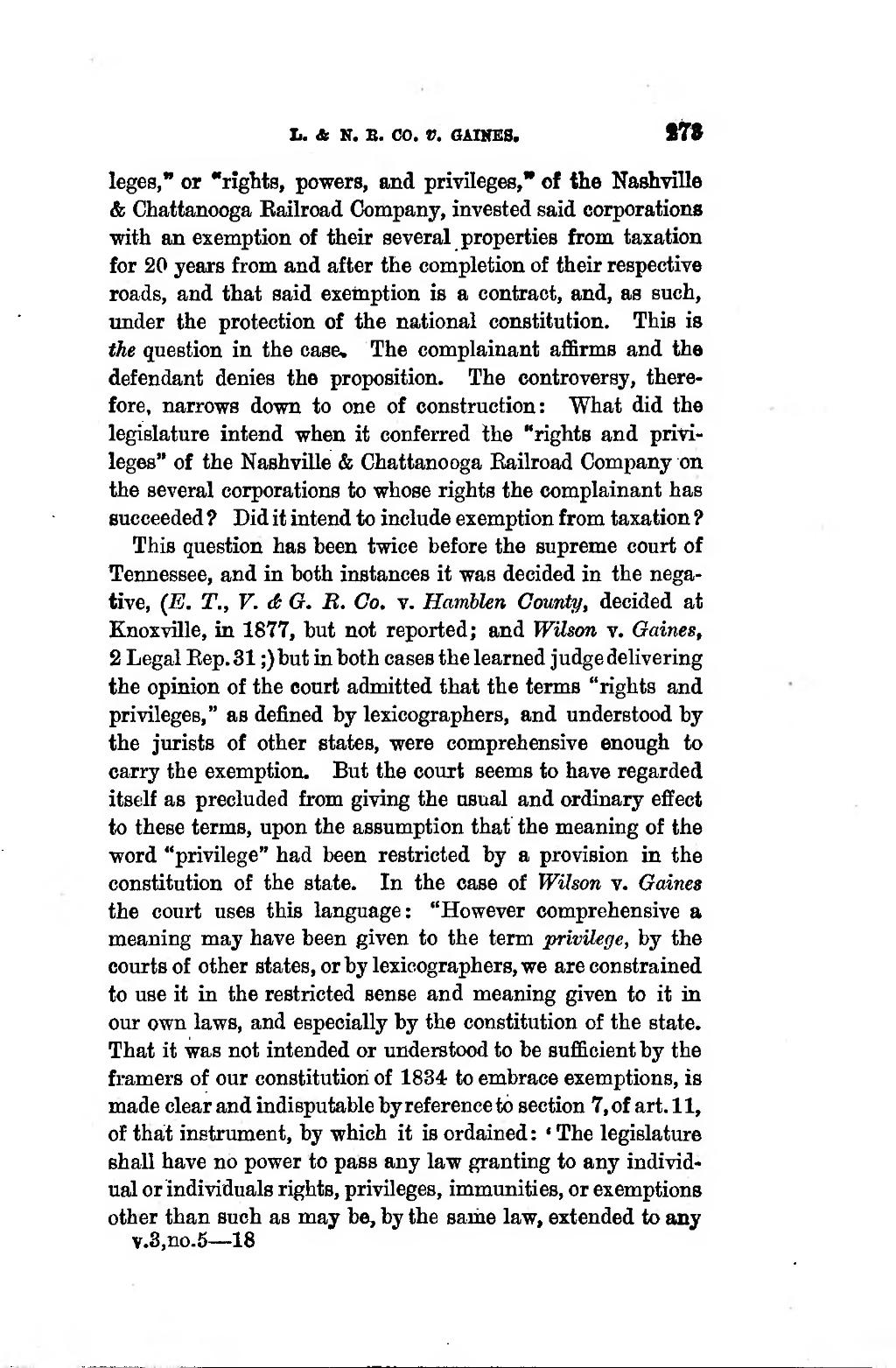L. & N. B. CO. V. GAINES. 978 �leges," or "rigîits, powers, and privileges," of the Nashville & Chattanooga Eailroad Ciompany, invested said corporations •with an exemption of their several properties from taxation for 20 years from and after the completion of their respective roads, and that said exemption is a contraot, and, as such, under the protection of the national constitution. This is the question in the case. The complainant affirms and the defendant denies the proposition, The controversy, there- fore, narrows down to one of construction: What did the legislature intend when it conferred the "rights and privi- leges" of the Nashville & Chattanooga Eailroad Company on the several corporations to whose rights the complainant has succeeded ? Did it intend to include exemption from taxation ? �This question has been twice before the supreme court of Tennessee, and in both instances it was decided in the nega- tive, (E. T., V. e G. R. Co. V. Hamblen Gounty, decided at Knoxville, in 1877, but not reported; and Wilson y. Gaines, 2 Legal Eep. 31 ;)but in both cases the learned judge delivering the opinion of the court admitted that the terms "rights and privileges," as defined by lexicographers, and understood by the jurists of other states, vrere comprehensive enough to carry the exemption. But the court seems to have regarded itself as precluded from giving the usual and ordinary efifeet to these terms, upon the assumption that the meaning of the Word "privilege" had been restrioted by a provision in the constitution of the state. In the case of Wilson v. Gaines the court uses this language: "However comprehensive a meaning may have been given to the term privilege, by the courts of other states, or by lexicographers, we are constrained to use it in the restricted sense and meaning given to it in our own laws, and especially by the constitution of the state. That it was not intended or understood to be sufficient by the framers of our constitution of 1834 to embrace exemptions, is made clear and indisputable byreferenceto section 7, of art. 11, oî that instrument, by which it is ordained : ' The legislature shall have no power to paSs any law granting to any individ- ual or individuals rights, privileges, immunities, or exemptions other than such as may be, by the same law, extended to any �v.3,no.5— 18 ����
